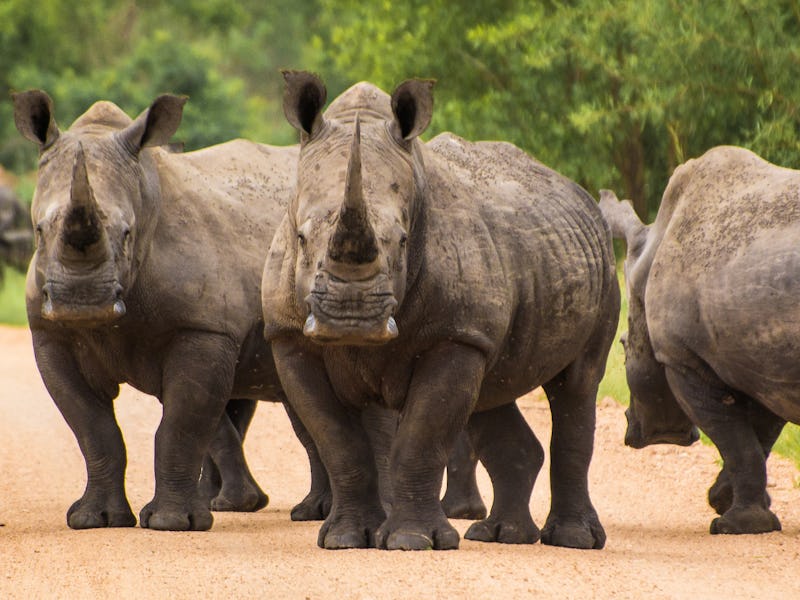South Africa Sees Rise In Rhino Poaching Arrests But Also Rhino Deaths
Environmental minister: Not good, but could be worse.

The demand for rhino horn — which we will remind you has all the biological magic of fingernail shavings — has claimed nearly 750 southern white rhinos since the beginning of January. That is in South Africa alone, with a majority poached from Kruger National Park. Last year, in comparison, poachers killed 716 animals during the same time frame. In 2007, that figure was just 13.
Beyond giving the raw death data, a speech Sunday from South Africa’s Environment Minister Edna Molewa was one focused on progress. Though there were more dead rhinos this year, poachers had upped their activity by more than a quarter from 2014.
Through August, anti-poaching rangers clashed with armed poachers 95 times, compared with 111 instances over the entirety of 2014. How is South Africa dealing with the upswing in poaching? Here’s Molewa:
In response to this escalated threat, we have stepped up our efforts, which includes traditional anti-poaching policing strategies. In this regard, the utilisation of K-9 units, night capability as well as air and land capability, is now bearing fruit.
The total number of arrests inside Kruger National Park was 138 for this year compared to 81 arrests for the same period last year as at 27 August 2015.
Authorities are getting creative, with anti-poaching dogs, and technological breakthroughs such as camera-equipped drones that follow a flight path planned by a predictive super-computer.
On an international scale, pseudo-medical desire for horn drives rhino poaching — particularly in places like Vietnam, where powdered horn is snorted as a status symbol that is pound-for-pound pricier than gold or coke. Molewa mentioned joint Vietnamese-South African programs to raise awareness of the issue, but they have not had the cultural impact of, say, Yao Ming speaking out against shark fin soup in China.
It is a grim time to be a white rhino, of any stripe, but Molewa said in her speech we should be thankful it’s not completely bleak: “The poaching figures are not cause for despondency. Were it not for the interventions I have outlined, they could unfortunately be far worse.”